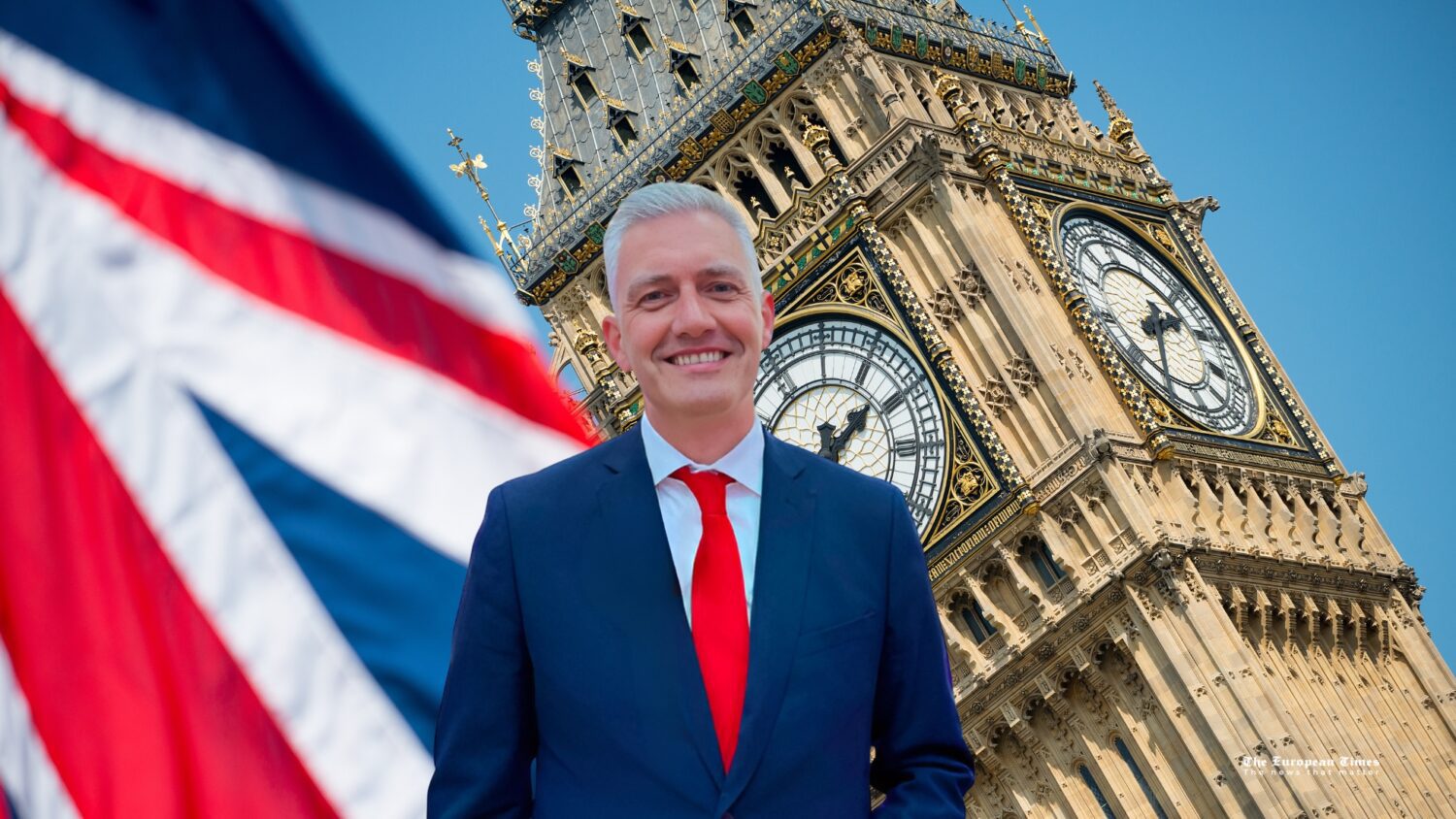Politics
EU updates Air Safety List


The EU has issued an updated list of airlines considered unsafe and banned from flying in the EU. The latest update adds Air Tanzania to the list due to safety concerns identified by the European Union Aviation Safety Agency, while suspensions previously imposed on Pakistan International Airlines were lifted.
Currently, 129 airlines are banned from EU skies:
- 100 airlines certified in 15 countries, due to inadequate safety oversight by their national aviation authorities
- 22 airlines certified in Russia, as well as 7 airlines from other countries, based on serious safety deficiencies
EU’s commitment to safe flying
Flying is one of the safest ways to travel, thanks to the EU air safety policies. These policies ensure the highest levels of safety for passengers and promote cost-efficient rules that facilitate the free movement of products, services and people. The EU aviation safety system is overseen by the European Commission, the European Union Aviation Safety Agency and National Aviation Authorities. Its rules apply in all EU countries and cover all key areas of aviation including airworthiness, aircrew, aerodromes, air operations and the provision of air navigation services.
The implementation of the single aviation market has significantly increased air traffic and the number of airlines operating in Europe. To keep pace, the EU has prioritised work on effective aviation safety standards. The EU Air Safety List bans or restricts unsafe third-country air carriers that fail to meet international safety standards from flying in European skies and informs passengers of any such carriers.
The EU’s approach to safety management in aviation is based on occurrence reporting where safety-related events in civil aviation are tracked, analysed and followed up. Common rules on accident investigations are also designed to prevent the reoccurrence of dangerous incidents.
Aviation safety is a global concern, making international cooperation essential. The EU works closely with the International Civil Aviation Organization, provides technical assistance to and cooperates with third countries, and negotiates bilateral aviation safety agreements with key international partners to help ensure safe skies around the world.
For more information
EU Air Safety List
Press Release: Commission updates EU Air Safety List and adds Air Tanzania to the airlines banned within the European Union
Questions and Answers: European Commission adopts new EU Air Safety List
Transport modes: Air
Aviation safety
Aviation Safety Rules
EU protects: How the EU helps us fly safely
European Union Aviation Safety Agency (EASA)
Source link
Politics
UK Appoints David Smith MP as Special Envoy for Freedom of Religion or Belief

In a significant move for global religious freedom, the UK Government has appointed David Smith MP as its new Special Envoy for Freedom of Religion or Belief (FoRB). This appointment, announced in early December 2024, signals the government’s commitment to advancing religious liberty across the globe and responds to increasing concerns over the persecution of religious minorities in many parts of the world. Smith, a Conservative MP with a strong track record on human rights issues, takes on a critical role at a time when religious freedoms face unprecedented challenges worldwide.
A Crucial Appointment for Religious Freedom
The new position of Special Envoy for FoRB was created in 2019 as part of the UK’s ongoing commitment to defending freedom of religion or belief for people of all faiths and none. The envoy works with international partners, including governments and civil society, to promote religious freedom, counter religious persecution, and support those who are oppressed because of their faith.
The announcement of Smith’s appointment was welcomed by a wide range of religious and human rights organizations. According to a statement from the UK government, the role will involve championing religious freedom in diplomatic discussions, strengthening the international coalition for religious liberty, and advocating for policies that protect the rights of religious minorities worldwide. Smith’s responsibilities will also include monitoring global trends related to religious freedom and providing guidance on how the UK can support vulnerable communities.
The Foreign, Commonwealth, and Development Office (FCDO) emphasized that the appointment of a dedicated envoy underscores the UK’s resolve to ensure that religious freedom remains a central tenet of its foreign policy.
David Smith: A Defender of Religious Liberty
David Smith, a Member of Parliament for over a decade, is known for his advocacy of human rights and his commitment to religious freedom. His appointment to this high-profile position is seen as a logical step, given his background in championing issues related to freedom of conscience, expression, and belief.
Smith has long been involved in supporting religious communities facing persecution, particularly Christians and other minorities in conflict zones like the Middle East. In his parliamentary work, he has regularly spoken out on the importance of religious freedom as a fundamental human right and has pushed for stronger UK and international action against regimes that suppress religious expression. Smith’s extensive experience working on humanitarian issues makes him a powerful advocate for those suffering under oppressive regimes.
As the new Special Envoy, Smith will now be tasked with expanding these efforts on a global scale, leveraging his political influence and relationships to press for meaningful change.
Welcoming the Appointment: Reactions from Religious Organizations
The appointment has been widely lauded by faith-based organizations and advocacy groups across the UK. Aid to the Church in Need (ACN), a charity that focuses on helping persecuted Christians around the world, praised the selection of Smith, calling it a “significant step” towards addressing the growing global crisis of religious persecution. ACN’s UK director, Dr. Neville Kyrke-Smith, expressed hope that Smith’s work would lead to more coordinated international efforts to protect vulnerable religious communities, particularly in regions like the Middle East and Africa where Christians and other religious minorities often face violent oppression.
Similarly, Christian Concern, an organization dedicated to defending religious freedom, commended the UK government’s decision. Andrea Williams, the CEO of Christian Concern, described the appointment as an “important signal” that the UK is serious about protecting religious freedom. Williams emphasized the importance of Smith working with international counterparts to counter the rise of state-sponsored persecution, especially in countries like China and North Korea, where the freedom to practice religion is severely restricted.
Care, a Christian public policy charity, also welcomed Smith’s appointment, underscoring the importance of having a designated official who can actively engage with international partners to address the complex challenges posed by religious intolerance and persecution. “Religious freedom is an essential human right that must be defended wherever it is threatened,” said a Care spokesperson. “We look forward to working with Mr. Smith to ensure that religious liberty is placed at the heart of the UK’s foreign policy.”
The Role of the UK Government in Global Religious Liberty Advocacy
The creation of the Special Envoy for FoRB was part of a broader initiative by the UK government to elevate religious freedom on the global stage. The UK’s involvement in FoRB issues has historically been robust, with the government regularly highlighting the issue at the United Nations and within diplomatic circles. However, the rise of authoritarian regimes and the ongoing persecution of religious minorities have made the role of the Special Envoy increasingly important.
Smith’s predecessor, Fiona Bruce MP, held the position of Special Envoy for FoRB until recently, and during her tenure, she made significant strides in raising awareness of religious persecution worldwide. She met with Christians, Muslims, Buddhists, Hindus, Scientologists, Bahai’s, Latrer Day Saints and everyone who needed to meet with her. Under her leadership, the UK government took steps to support vulnerable religious groups, including the Yazidis in Iraq, Christians in the Middle East, and Uyghur Muslims in China. Smith’s appointment builds upon this legacy, and experts believe that his extensive experience will help to elevate the UK’s influence on this critical issue.
Smith’s work will not only focus on diplomatic efforts but will also involve collaborating with international civil society groups, religious leaders, and grassroots organizations that are directly involved in defending religious freedom. As the UK’s representative, Smith will be expected to engage with a wide range of stakeholders to foster international cooperation in addressing religious persecution.
Challenges Ahead
Despite the broad support for Smith’s appointment, there are significant challenges ahead. Religious persecution continues to rise in various regions of the world, with many countries adopting increasingly restrictive policies on religion and belief. In China, for example, the government continues to impose heavy restrictions on religious practices, particularly targeting Christian and Muslim communities. In countries like Nigeria and Pakistan, religious minorities such as Christians, Yazidis, and Hindus continue to face violence, discrimination, and displacement.
The Special Envoy’s role is not without its difficulties. Advocating for religious freedom in countries with hostile regimes can be politically sensitive, and the envoy must carefully balance diplomatic priorities with the need to confront human rights abuses. Moreover, given the complexity of global geopolitics, there will be times when the UK’s stance on religious freedom may clash with its economic or strategic interests in certain regions.
However, with Smith’s experience and commitment to the cause, the UK government’s approach to FoRB looks poised to continue making meaningful strides in the global fight for religious freedom.
Conclusion: A Beacon for Global Religious Liberty
David Smith’s appointment as the UK’s Special Envoy for Freedom of Religion or Belief represents a significant step forward in the fight to protect religious freedoms across the world. In a time of rising persecution and intolerance, Smith’s work will be essential in shining a spotlight on the plight of religious minorities and advocating for their rights on the global stage.
With the support of religious and human rights organizations, the UK’s commitment to religious freedom is stronger than ever, and Smith’s appointment signals that the country is ready to continue playing a leading role in defending this fundamental human right. As the world’s attention turns increasingly to issues of religious freedom, the role of the Special Envoy will remain crucial in shaping global responses and ensuring that the freedom to practice one’s faith is protected for all.
Politics
ARGENTINA Javier Milei’s First Year in Office: A Bold Vision or Polarizing Gamble?

In a much-awaited speech marking one year since his inauguration, Argentina’s President Javier Milei presented a comprehensive and impassioned address, celebrating what he described as a transformative year for the nation. The speech, titled “The Most Important Announcement,” aimed to highlight the government’s achievements, justify the challenges faced by citizens, and outline a vision for Argentina’s future. While supporters praised his radical reforms, critics remained uncertain about the long-term viability of his policies.
A Year of Sacrifice and Hardship
“Dear Argentines, I want to begin by thanking you all,” Milei opened, expressing gratitude for the perseverance shown by ordinary citizens. Referring to the so-called “model of the caste” that he blamed for decades of mismanagement, he declared: “The sacrifice you’ve made is moving. I assure you, it will not be in vain.”
Milei acknowledged that his first year in office involved what he described as a “trial by fire,” citing measures that caused short-term pain but aimed at long-term gain. “When I took office, inflation was running at an annualized rate of 17,000%,” he stated, referring to hyperinflationary pressures that had gripped the economy. According to Milei, through aggressive fiscal measures, inflation is now under control, with the wholesale index showing just 1.2% for October.
Economic Overhaul
Central to Milei’s address was a detailed breakdown of his economic reforms. He highlighted the elimination of Argentina’s staggering fiscal deficit, turning it into a sustained surplus for the first time in over a century. “This was achieved through the largest adjustment in the history of humanity,” he said, emphasizing the controversial decision to halt monetary emissions. By cutting public spending and slashing government subsidies, Milei claims to have stabilized the economy and opened the doors to foreign investment.
On international debt, Milei painted a stark contrast between the state of affairs a year ago and today: “The debt with importers, which stood at $42.6 billion, is now cleared. Our trade surplus is growing, and reserves are being rebuilt.”
The Motosierra Plan in Action
A hallmark of Milei’s campaign was his pledge to wield a figurative “chainsaw” (motosierra) against public spending and government bloat. In his speech, he proclaimed significant progress in streamlining the state apparatus. “We’ve reduced ministries from 18 to 8 and eliminated nearly 100 redundant agencies. Public sector employees must now pass competency exams to keep their jobs.”
Milei’s critics argue that his drastic cuts to government services risk creating gaps in vital sectors. Nonetheless, he reiterated his belief that “a smaller state means greater liberty” and promised even more aggressive reforms in the coming year.
Social Policies and Public Order
The President also tackled the hot-button issue of public security. He touted a 63% reduction in homicides in Rosario, the epicenter of Argentina’s drug violence, attributing the success to his “Plan Bandera” and a tough-on-crime approach. “The streets are no longer dominated by fear and lawlessness,” he declared, adding that offenders are now compelled to work to repay their debt to society.
On social welfare, Milei emphasized that direct transfers to citizens, bypassing intermediaries, had restored dignity to the vulnerable. “A year ago, the Universal Child Allowance covered just 60% of the basic food basket. Today, it fully covers 100%,” he claimed.
Towards a Free-Market Future
Milei’s vision for Argentina’s economic future hinges on radical free-market principles. He announced the introduction of a monetary competition system, allowing Argentines to transact in any currency, including U.S. dollars. “We are laying the groundwork to eliminate the Central Bank entirely,” he said, framing this as a solution to Argentina’s chronic inflation.
His administration has also prioritized deregulation. “Over 800 regulations have been scrapped,” Milei boasted, citing industries from pharmaceuticals to e-commerce as beneficiaries. He also called for Argentina to embrace free trade, pushing for a historic agreement with the United States.
An Optimistic Outlook
Milei ended his speech on an optimistic note, promising that 2024 would mark a year of “high growth and low inflation.” He attributed this to structural reforms and the government’s ability to attract significant foreign investment. Highlighting Argentina’s potential to become a global hub for artificial intelligence and clean energy, he asserted, “We have the resources, talent, and freedom to lead in the technologies of tomorrow.”
Despite the ambitious rhetoric, the challenges ahead are immense. Social unrest, unemployment, and the erosion of public trust in institutions remain hurdles. Milei’s speech did not delve into these complexities, focusing instead on the positive outcomes of his administration.
Polarized Reactions
For supporters, Milei’s reforms represent a long-overdue reckoning with a bloated state and a corrupt political class. His aggressive deregulation and fiscal discipline have earned him comparisons to historical reformers.
However, critics argue that the speed and scale of his reforms risk destabilizing the economy and exacerbating inequality. Labor unions and opposition parties accuse him of prioritizing foreign investors over domestic welfare. Some fear that deregulation may erode labor protections and environmental safeguards.
Looking Ahead
Milei’s first year has been nothing short of transformative, characterized by bold policies and polarizing rhetoric. While his supporters see the makings of an “Argentine miracle,” skeptics remain unconvinced. As Argentina braces for another electoral year, Milei’s agenda will undoubtedly be a defining factor in the nation’s political and economic future.
Politics
Commissioner Christophe Hansen: Building together the future of farming, food and EU rural areas!

A Personal and Professional Dedication to Agriculture
In a powerful address at one of Europe’s largest agricultural and food policy forums, Commissioner Christophe Hansen shared his personal and professional commitment to shaping the future of European agriculture. Drawing on his roots as a farmer from northern Luxembourg, Hansen highlighted how his upbringing and experiences drive his resolve to create policies that empower farmers, support rural communities, and secure the EU’s food supply for generations to come.
Speaking to a diverse audience of farmers, industry leaders, NGOs, consumers, and policymakers, Hansen emphasized the need for a collaborative, inclusive approach to agricultural policy. “For me,” he said, “there is no better way to start my second week than here with you at the biggest event for agriculture and food in Europe.”
The Challenges Facing European Agriculture
Commissioner Hansen addressed the myriad challenges confronting the sector:
- Aging Farming Demographics: Only 12% of EU farmers are under the age of 40, with an average age of 57. Women account for just 3% of the farming workforce, underscoring the need for targeted initiatives to attract and retain diverse talent in agriculture.
- Economic Pressures: Structural challenges, including declining farm numbers, economic disparities, and an administrative burden that overwhelms many, contribute to farming being perceived as a high-risk, stressful occupation.
- Geopolitical and Environmental Pressures: Global tensions, climate change, and biodiversity loss are placing unprecedented strain on the sector, while demanding innovation and resilience from farmers.
Despite these obstacles, Hansen expressed deep admiration for the resilience of European farmers, calling for a united effort to capitalize on opportunities while addressing these pressing issues.
Commissioner Hansen’s Vision: A Roadmap for the Future
Hansen presented a forward-looking vision for a competitive, sustainable, and resilient agricultural sector. He outlined several priorities:
- Generational Renewal and Demographic Balance
Hansen highlighted the urgent need to attract young farmers by ensuring access to critical resources, such as fertile soil, land, capital, and technology. He emphasized improving rural infrastructure—such as broadband internet—and ensuring rural communities have the same opportunities and services as urban areas.“Without creating the right conditions, we risk losing the next generation of farmers,” he warned, adding that fostering family farming and supporting young entrants must be central tenets of EU agricultural policy. - Simplification of Regulations
Hansen announced plans to reduce administrative burdens for farmers, emphasizing the importance of practical, actionable measures. He referenced a 2025 simplification package aimed at easing compliance for small-scale farmers, including farms under 10 hectares, as part of broader reforms for 2027. - Fairness and Value in the Food Supply Chain
Stressing the importance of fairness, Hansen called for reforms to strengthen farmers’ bargaining positions and ensure equitable compensation. He underscored the need to rectify imbalances in the food chain and promote producer organizations to better position farmers in negotiations with retailers. - Investment in Innovation and Sustainability
Hansen identified bridging the sector’s investment gap as a critical step toward driving innovation. He pointed to the need for research and technology that enable sustainable farming practices while addressing climate change and biodiversity goals.
Strengthening Global Competitiveness and Trade
Commissioner Hansen recognized that European agriculture is deeply interconnected with global trade. He highlighted the sector’s 2023 export success, valued at €230 billion, which created a €70 billion trade surplus. However, he emphasized the importance of reciprocity in trade, advocating for regulations that ensure imported goods meet the EU’s high environmental and ethical standards.
Hansen cited the EU’s deforestation regulation and restrictions on pesticide-treated imports as key examples of ensuring fairness while maintaining the EU’s competitive edge.
Climate and Environmental Goals
Acknowledging that farmers are both victims of and vital players in combating climate change, Hansen stressed the importance of incentivizing sustainable practices. “We need to develop tools to adapt and deploy innovation on the ground,” he said, rejecting top-down mandates in favor of tailored solutions.
He praised the EU’s Common Agricultural Policy (CAP) for its contributions to stability and food security over the past 60 years but stressed the need for reforms that balance predictability and flexibility. The CAP, he argued, must continue evolving to meet modern challenges while preserving its foundational strengths.
Collaborative Action for a Sustainable Future
To guide these efforts, Hansen announced the establishment of the European Board on Agriculture and Food, inviting recognized organizations to join this platform for dialogue and collaboration. He expressed his determination to foster constructive exchanges among all stakeholders to shape policies that reflect shared values and aspirations.
Closing his speech, Hansen spoke with heartfelt optimism about the future of European agriculture: “I want to create a better environment for our children and the next generation. This can only be achieved if all actors work together. We want to deliver healthy food, a healthy environment, and a sustainable livelihood for the next generation of farmers.”
-
Travel7 days ago
Eurostar, Trenitalia, Deutsche Bahn: What are the best and worst rail operators in Europe?
-

 EU & the World6 days ago
EU & the World6 days agoWho Is Luigi Mangione’s Family? About His Parents, Cousin & More
-

 Sports6 days ago
Sports6 days agoSerie A 2024-2025: Monza-Udinese, the likely lineups
-

 EU & the World6 days ago
EU & the World6 days ago‘September 5’ Movie: What It’s About, Where to Watch it & More
-

 Sports6 days ago
Sports6 days agoLeonardo Bonucci no-holds-barred on Allegri and Szczesny
-

 Sports6 days ago
Sports6 days agoCarlo Ancelotti praises Gian Piero Gasperini and his Atalanta team
-

 Sports5 days ago
Sports5 days agoJannik Sinner repeats himself: still a fan favorite
-

 EU & the World6 days ago
EU & the World6 days agoGracie Abrams’ 2025 Tour: See Dates & Tickets








